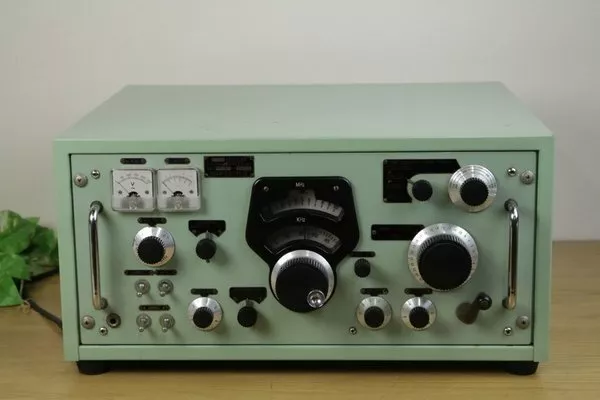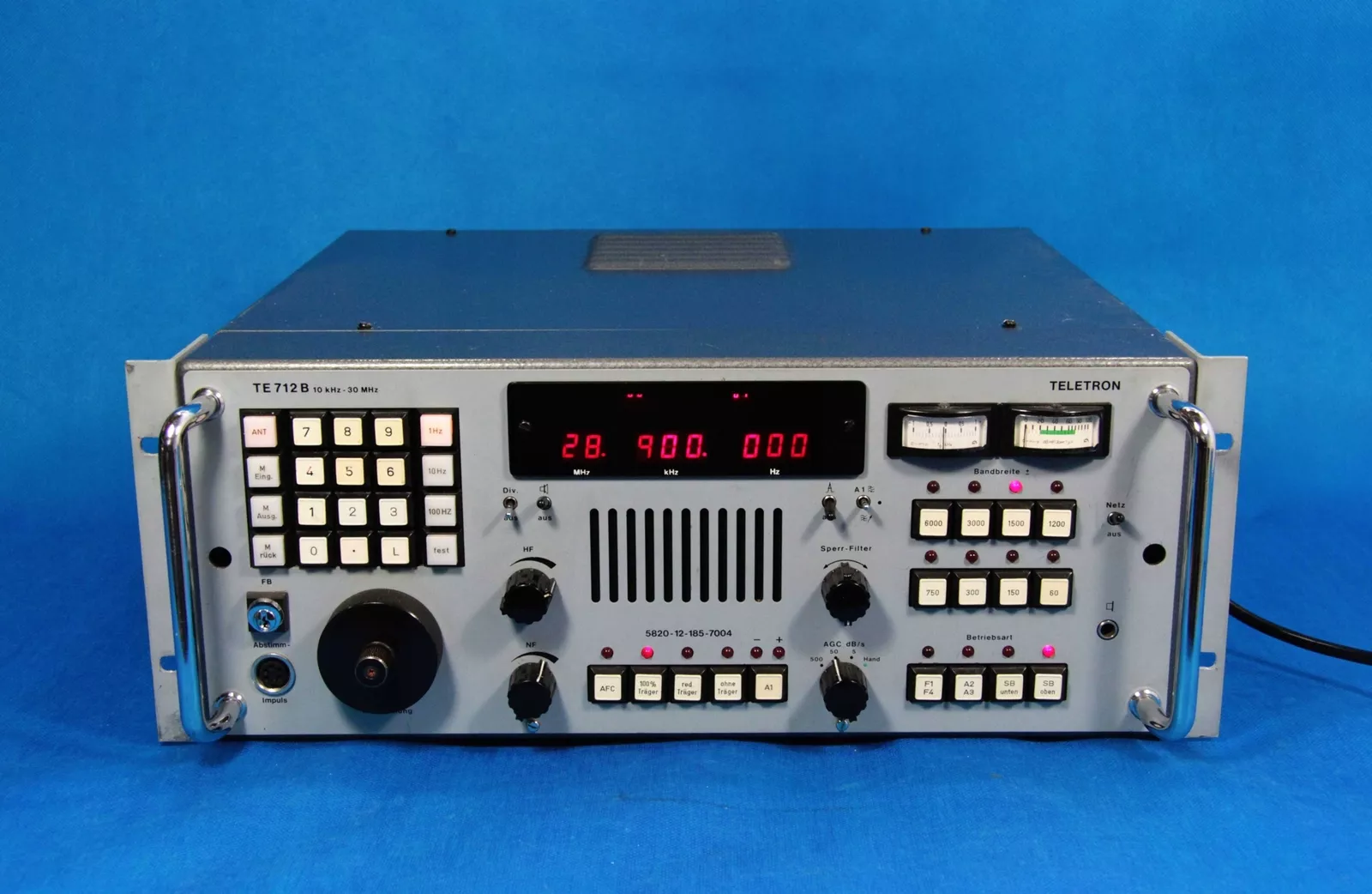Many thanks to SWLing Post contributor, Adi, who writes:
Hi Thomas, I was just browsing eBay when I decided to see what was “new” in the receivers section.
These popped up:
https://ebay.us/iRSC87 [eBay partner link]
RH1-1? [See photo above] Google doesn’t know much about it.
https://ebay.us/RNQEy3 [eBay partner link]
The seller from Poland writes, “The receiver was produced specifically for reconnaissance purposes.” I wonder what was heard through its circuits…? ?
I guess a few readers can tell us more about them.
Regards,
Adi
Thanks for sharing, Adi. I’m not familiar with either of these receivers, but I’m sure some of the experts in our community can shed some light on them!



The Furuno might be a hybrid model. According to the Fourth Edition of Osterman’s detailed book, Furuno purchased Kobayashi, which produced a similar looking AS-76, and supplied it also to Furuno, which also sold it as a Furuno AS-76. See pp 215 and 385. However, the eBay item has 2 meters, not 1; the only receiver from either Furuno or Kobayashi in Osterman’s book with 2 meters is the Kobayashi DH-66. It is possible that the eBay item started out as a Kobayashi DH-66 and then was rebranded by Furuno.
The Teletron 712B is now among the classic German receivers made for military use. And it’s one of the most beautiful sets. I acquired one last year. It does require a lot of knob cranks due to limited tuning steps and it cannot be converted from 220 volts.
Furuno was (is ?) a Japanese company, here’s a direction finder from Furuno
https://odnd.nl/broadcast-transmitter-equipment/radio-direction-finder-fda-1-furuno-electric-co-ltd-japan-receiver
Further informations
https://en.wikipedia.org/wiki/Furuno
I do like the look of the Faruno receiver and would love to own one at a sensible price.
However, they were made/sold by a UK company as a marine receiver so are probably pretty basic. So not a communications receiver with multiple crystal filters etc.
Furuno Electric Company is a japanese manufacturer. They did, however, establish a subsidiary in the UK in 1979.